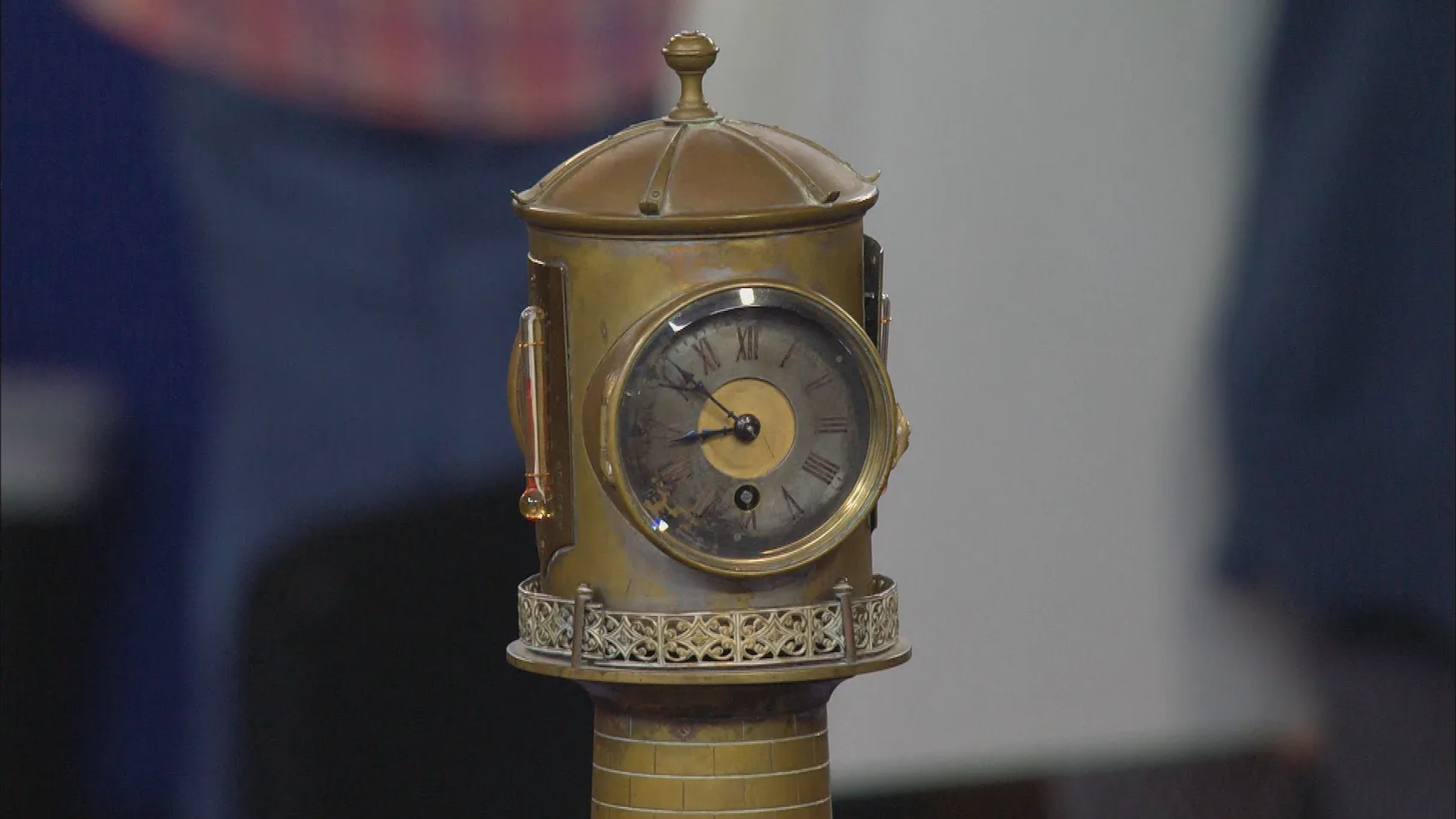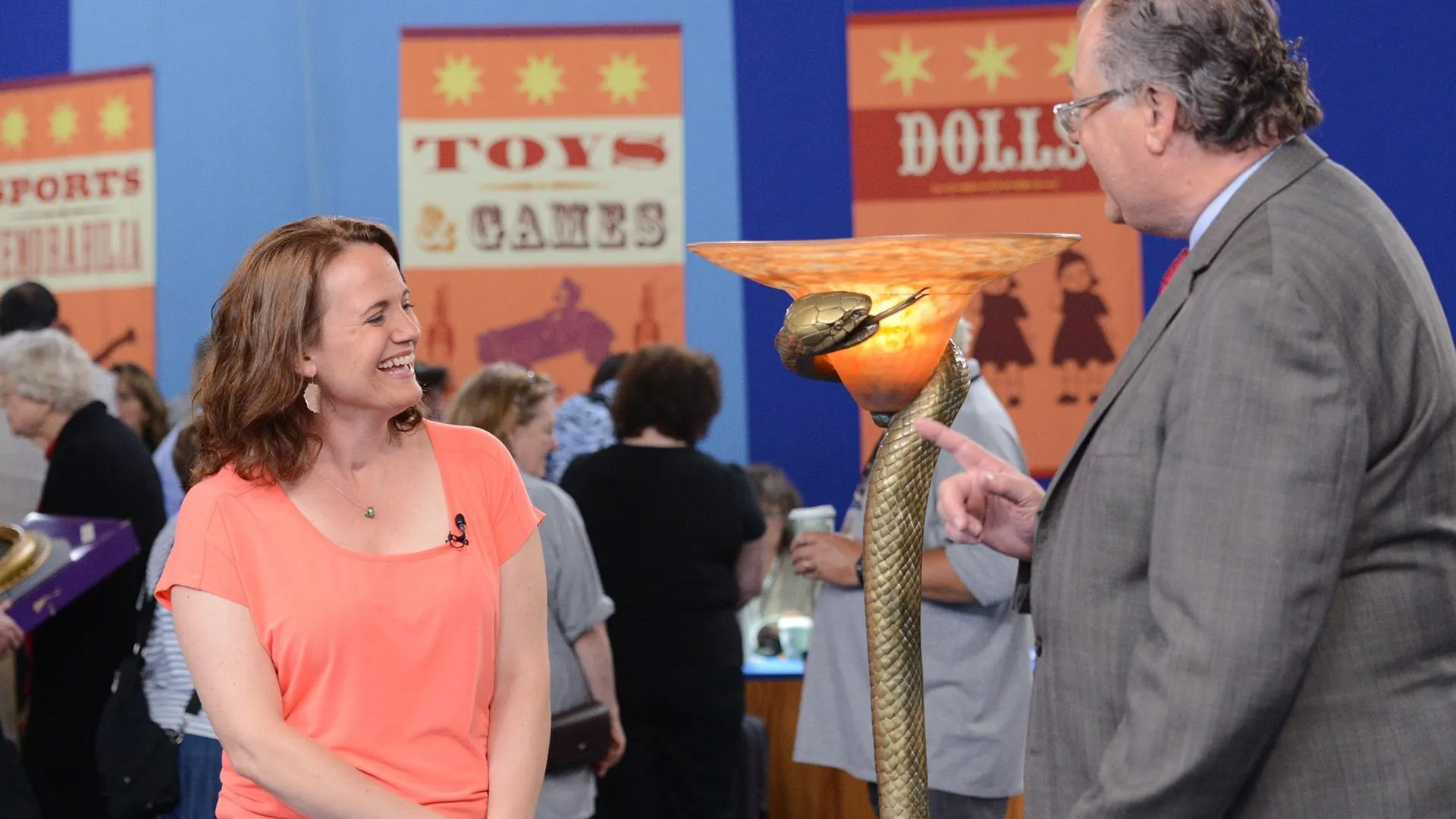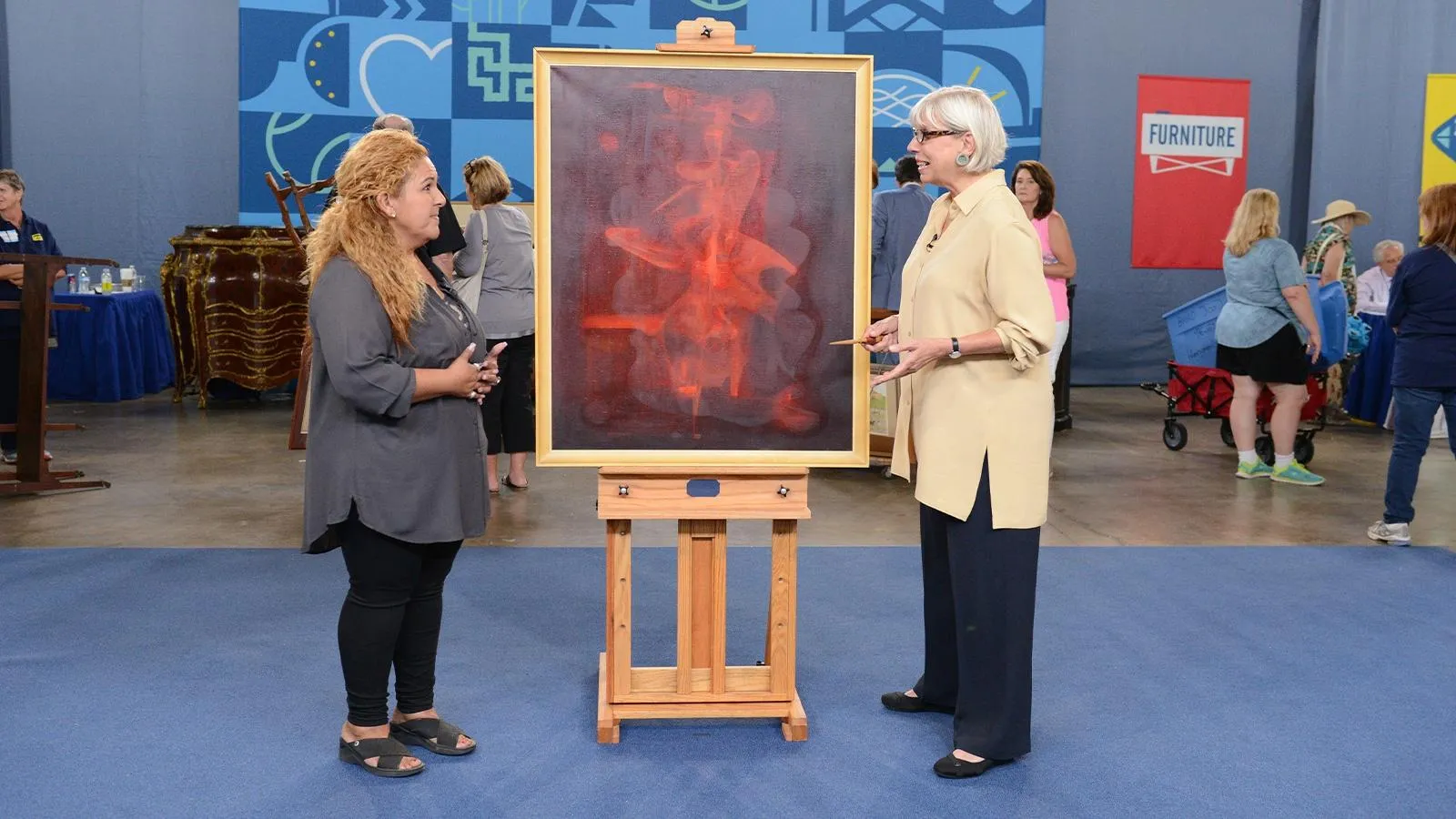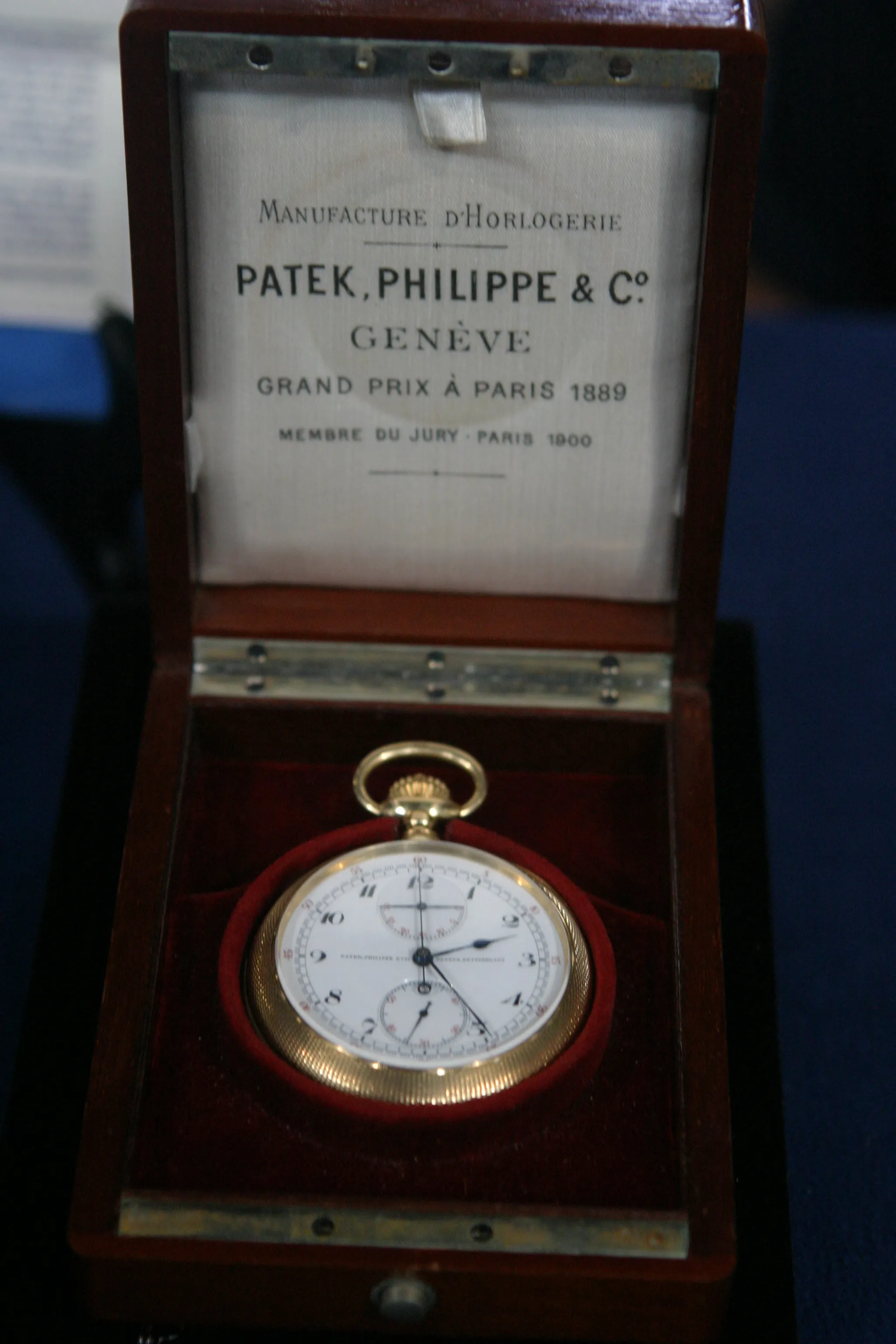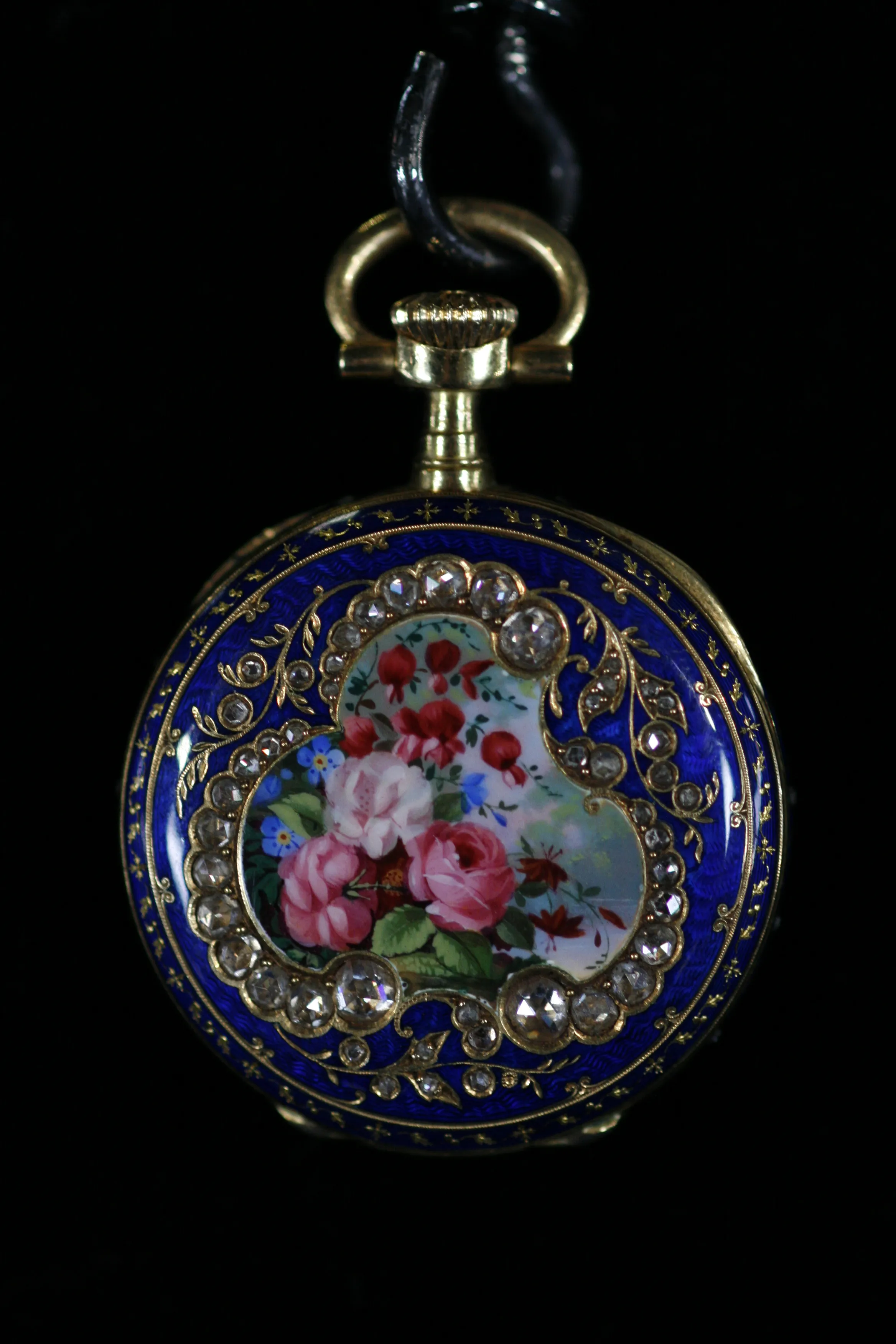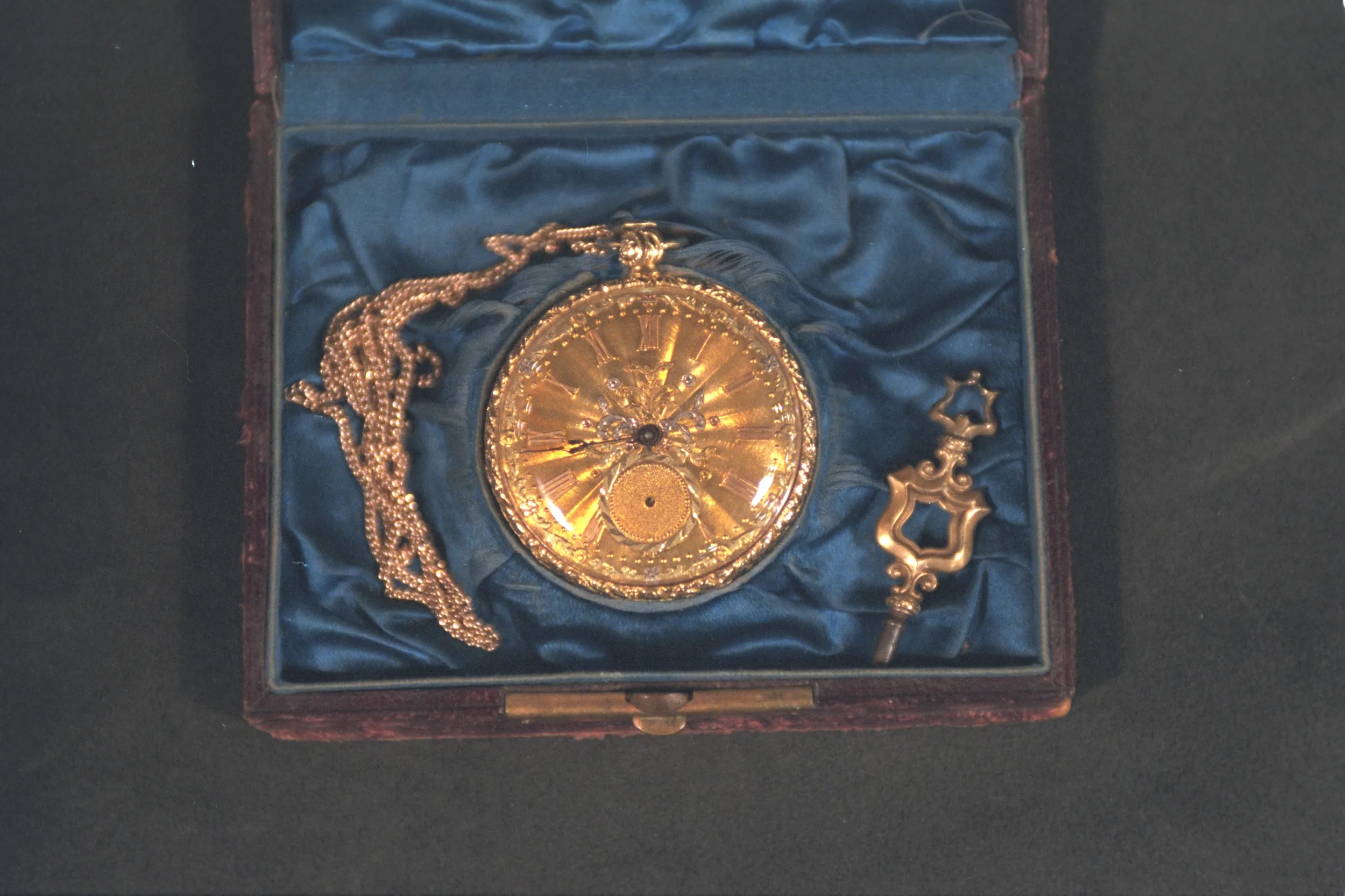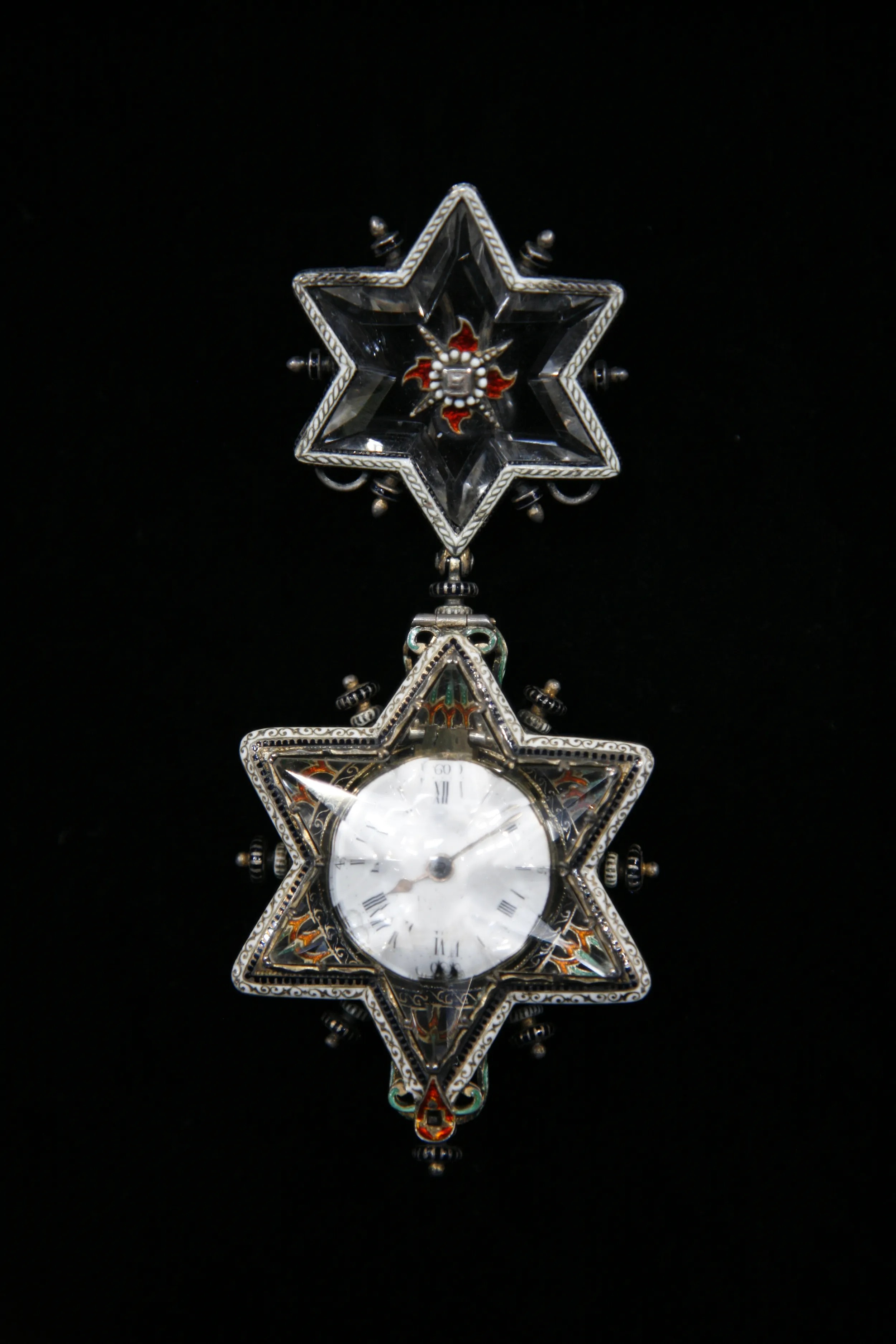GUEST: I was in Occidental, California. It's north of the Golden Gate. Came across a thrift store and decided to go in there. I saw this clock and... My mother is a big fan of lighthouses, so it was an intended gift for her, but I kind of decided to hold on to it for myself. I spent 150 bucks on it about a year ago. It's just been sitting in the centerpiece in the house.
APPRAISER: This is the result of a man who was a mechanical genius. He was French, so the clock is French.
GUEST: Okay.
APPRAISER: And his name was A.R. Guilmet. And he's most famous for his mystery clocks. Mystery clocks are clocks where there's no apparent reason for the pendulum to be swinging.
GUEST: Okay.
APPRAISER: But he's also very famous for this series of clocks that he called his industrial series. This lighthouse clock is one of the more popular in the series. I'm sure they were, in quotes, "mass-produced," but not in the same way domestic clocks were. Maybe hundreds were made. It dates from about 1880. It's a good example of what we call automata. The top rotates as it would if it were a full-sized lighthouse, this representing the beam.
GUEST: Mm-hmm.
APPRAISER: Collectors want one of every one of these series of industrial clocks, so they're highly sought-after.
GUEST: Really?
APPRAISER: The lighthouse will rotate about 12 hours on each wind.
GUEST: Okay.
APPRAISER: But the clock will run a week.
GUEST: Really?
APPRAISER: It also has a barometer and thermometers on either side. When you brought it in to our table, my colleague and I both flipped. Especially after hearing that you bought it at a thrift shop. We appraised its value at retail for between $3,500 and $4,000.
GUEST: Really?
APPRAISER: Every day.
GUEST (laughs): Talk about a good investment.
APPRAISER: Very much so.
GUEST: Oh, man.

